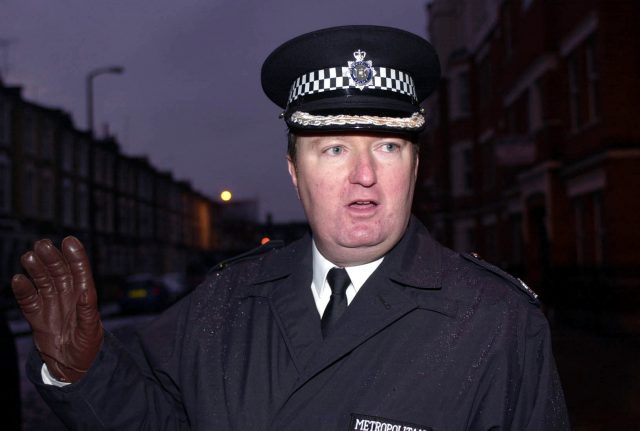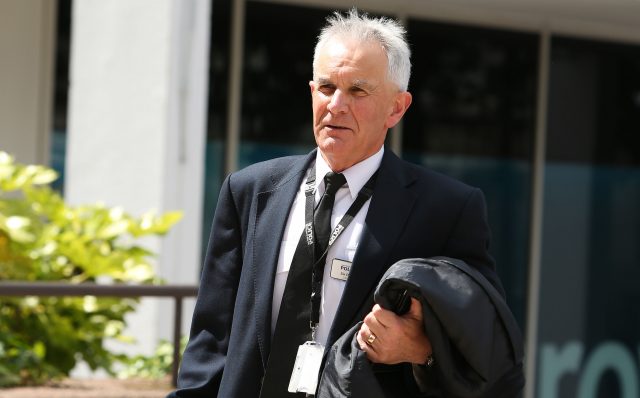
The leak of allegations that police found pornographic images on the work computer of Cabinet minister Damian Green should never have happened, the Chief Inspector of Constabulary has said.
Amid the growing political furore over the way two retired officers passed details to the media, Sir Thomas Winsor said police had an “enduring” duty of confidentiality, even after they had left the service.
In a statement, he said if a serving officer had breached that duty they would face disciplinary action potentially leading to dismissal and, in certain circumstances, criminal charges.
“The special powers which citizens confer on police officers are inseparable from the obligations of special trust placed in police officers to enable them to do their duty,” Sir Thomas said.
 Sir Thomas Winsor (Dominic Lipinski/PA)
Sir Thomas Winsor (Dominic Lipinski/PA)
“That trust requires every police officer to respect and keep confidential information which they obtain in the course of their duties and which is irrelevant to their inquiries and discloses no criminal conduct.
“The obligation of confidentiality, and the duty not to break trust, is an enduring one. It does not end when a police officer retires.”
On Friday, ex-Scotland Yard detective Neil Lewis told the BBC he was “shocked” at the volume of material found in a 2008 police raid on Mr Green’s Westminster office and had “no doubt whatsoever” it had been amassed by the Tory MP.
The allegations echoed claims made by former Metropolitan Police assistant commissioner Bob Quick, who went public last month with his account of the material discovered during an investigation into Home Office leaks.
 Commander Bob Quick in 2003 (PA)
Commander Bob Quick in 2003 (PA)
The claims by the two ex-officers added to the pressure on embattled Mr Green – Theresa May’s closest political ally and effective deputy prime minister.
The minister, who is the subject of a Cabinet Office inquiry into alleged inappropriate behaviour towards a young female activist, has vehemently denied looking at or downloading porn on the work computer.
As Tory MPs rallied round in support, former attorney general Dominic Grieve said the leaks had “the smack of the police state”.
Former Greater Manchester chief constable Sir Peter Fahy also entered the row, saying the retired officers were entering “dangerous territory” and that the police should stay out of politics.
 Sir Peter Fahy said police should not be involved in politics (PA)
Sir Peter Fahy said police should not be involved in politics (PA)
In his statement, Sir Thomas said that if the police could not be trusted with confidential information, public confidence would be damaged.
“The public need to know that when information about their private lives comes into the possession of the police, and that information is irrelevant to the work of the police, its confidential and private nature will be respected in perpetuity,” he said.
“If public confidence in this respect is damaged, and people do not believe they can trust the police in such circumstances, great harm may be done to the relationship between the police and the citizen, and the efficiency and effectiveness of the police will be impaired.
“Such violations may have a chilling effect on the willingness of victims and witnesses to co-operate with the police, and that will be at the expense of public safety and justice. They should never occur.”
The Metropolitan Police has already said it is launching its own inquiry about how information gathered during an investigation was made public.
Mr Lewis told the BBC that he was involved in analysing the then-opposition immigration spokesman’s computer during the 2008 investigation into Home Office leaks.
He stressed that none of the images he saw were “extreme”, but said analysis of the computer suggested they had been viewed “extensively” over a three-month period, sometimes for hours at a time.
Speaking to reporters at his Kent home on Friday, Mr Green said: “I have maintained all along and I still maintain – it is the truth – that I did not download or look at pornography on my computer, but obviously while the investigation is going on I can’t say any more.”


Why are you making commenting on The Herald only available to subscribers?
It should have been a safe space for informed debate, somewhere for readers to discuss issues around the biggest stories of the day, but all too often the below the line comments on most websites have become bogged down by off-topic discussions and abuse.
heraldscotland.com is tackling this problem by allowing only subscribers to comment.
We are doing this to improve the experience for our loyal readers and we believe it will reduce the ability of trolls and troublemakers, who occasionally find their way onto our site, to abuse our journalists and readers. We also hope it will help the comments section fulfil its promise as a part of Scotland's conversation with itself.
We are lucky at The Herald. We are read by an informed, educated readership who can add their knowledge and insights to our stories.
That is invaluable.
We are making the subscriber-only change to support our valued readers, who tell us they don't want the site cluttered up with irrelevant comments, untruths and abuse.
In the past, the journalist’s job was to collect and distribute information to the audience. Technology means that readers can shape a discussion. We look forward to hearing from you on heraldscotland.com
Comments & Moderation
Readers’ comments: You are personally liable for the content of any comments you upload to this website, so please act responsibly. We do not pre-moderate or monitor readers’ comments appearing on our websites, but we do post-moderate in response to complaints we receive or otherwise when a potential problem comes to our attention. You can make a complaint by using the ‘report this post’ link . We may then apply our discretion under the user terms to amend or delete comments.
Post moderation is undertaken full-time 9am-6pm on weekdays, and on a part-time basis outwith those hours.
Read the rules hereLast Updated:
Report this comment Cancel